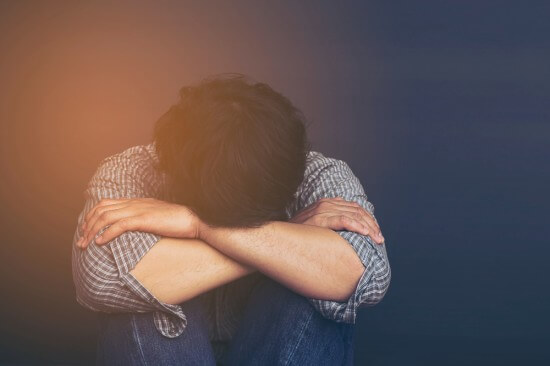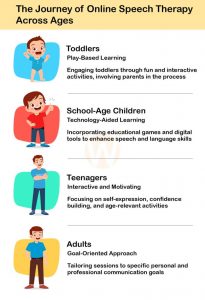It is the field of Psychoneuroimmunology that says how the immune system and nervous system are connected to each other, which results an impact on a person’s mental and emotional health combinedly. Many studies were carried out to examine the influence of immune and nervous system on the psychological consequences of stress.
PNI research suggests that chronic stress can lead to exacerbate mood disorders such as anxiety, depression, bipolar disorders, changes in thinking patterns, personality changes and behavioural problems. There are numerous significant effects of stress that take a toll on a person’s mental health. Stress is like a slow poison inflicting the mind, which is the driver of our body.
The extreme effects of stress and over thinking are already showing us a number of examples in today’s society where people are getting either directly or indirectly effected every now and then.
Depression and Stress
Depression is the state of severe mental illness that negatively affects the way how we think, act and behave. Most commonly, when a person is stressed and he finds that the ability and resources that are available to fight the stressors are not helpful, there are high chances that it leads to depression. Stress and depression are inter-related. Let’s see what happens to a stress-effected person.

The defense mechanism of our body produces some byproducts for the stress hormones, which can act as sedatives to calm down the body. These can make a person fatigued. The amount of these byproducts get increased, when the stress becomes chronic. So, the more the amount of byproducts the calmer and inactive the body will be. Which means, under chronic stress, these contribute to a sustained feeling of low energy or depression.
The thought of experiencing stress as negative also creates a sense of depression. It is very common to experience the highs and lows of mood in our daily life, Sometimes, we feel “down in dumps” while sometimes, it is like “high on cloud 9”. When depressive feelings are persistent, they start interfering with our abilities like completing daily activities, holding a job and enjoying interpersonal relationships etc.
Such unremitting, longer periods of profound depression are termed as Major depression, which include appetite changes, fatigue, self-hate, insomnia, guilt, feelings of worthlessness, inability to make decisions, restlessness, agitation, irritability, helplessness, withdrawal from pleasurable activities, feelings of hopelessness etc. The thoughts of suicides and the actions related to suicidal tendency are all the results of depression and stress.
Bipolar disorder
Bipolar disorder is a kind of mental illness, where people suffering from it experience extreme mood swings from high to low and from low to high. High are periods of mania and low are periods of depression. The mood swings may even become mixed and you might feel elated and depressed at the same time. As these extremely elated mood is called as mania, and the other extreme is called as depression, this bipolar disorder is also called as Bipolar disease or Manic depression.
There are two types of Bipolar disorder. Bipolar I involves mania and depression, while Bipolar II involves hypomania. Hypomania is similar to mania but the energy levels are not as extreme as for mania. These symptoms are always noticed by others. However, hypomania is not as critical as mania and the person will not be hospitalized.
Hypomania is the condition when the person is abnormally happy but is not fully elated like manic. When in a manic or hypomanic state, the person tends to experience a decreased need for sleep and racing thoughts which cannot be expressed in words as fast as they occur and heightened distractibility. Manic individuals typically show poor judgement and impulsivity and are prone to engaging in risky or dangerous behaviors and activities.
The additional symptoms that are especially found in maniacs are.
- Visual and auditory hallucinations
- Delusional thoughts
- Paranoid thoughts
Factors of Bipolar disorder
Stress is the major factor that can cause or trigger Bipolar symptoms. It was found that in most of the cases, a major life changing situation or highly stressful scenario can trigger the episodes of Bipolar. For example, losing a loved family member, losing a favorite job, having financial troubles etc. are potential enough to trigger such episodes.
The signs of depression under Bipolar disorder include
- Lack of energy
- Hopelessness
- Deep Sadness
- Suicidal tendencies
- Too much or too little sleep
- Lack of interest in anything
Many of these symptoms are caused by various other conditions too. Hence Bipolar is really hard to diagnose, while stress is the major culprit in causing it. Bipolar disorder is also caused if you have a family history of it or it may also involve a chemical imbalance in the brain.
The other factors of Bipolar disorder are
- Prolonged medication
- Sleep deprivation
- Alcohol usage
- Drug usage
But it is an obvious fact that people suffering with stress and anxiety are more likely to cultivate these habits, which are in turn responsible for many diseases like the above mentioned one.
Stress and Anxiety disorders
People when stressed, may show relatively mild outward signs of anxiety such as biting their nails, pressing their fingers, fidgeting, tapping their feet etc. In other people, chronic activation of stress hormones can contribute to severe feelings of anxiety, such as pounding heart, acidity, stomach ache, nausea, sweaty palms, trembles etc. and feelings of helplessness and a sense of impending doom.
When these anxiety and dread feelings continue for longer periods, they cause people to worry excessively about upcoming situations which lead to avoidance. This avoidance behavior leads to escapism but never about facing the situations as they are.
Effect on Cognitive functioning
Many of us might have observed that a stress-effected person finds it difficult to concentrate on anything, may experience confusion in doing even the regular things, unable to learn anything, have trouble in decision making, can’t mingle with everyone and can’t enjoy anything around.
This is all because the presence of stress hormones for a longer period in the body can alter the structure and operation of some aspects of our nervous system.
Hippocampus is an important part of the brain which lays the new long term memories. The functioning of neurons at the Hippocampus gets effected due to stress. This badly obstructs a person from learning and understanding new things.
Along with that, the frontal lobe, which is the part of the brain that helps us to pay attention, to filter out the irrelevant information and judge to solve problems, also gets effected. Hence the problems regarding concentration, decision making etc. are faced.
Changes in Personality
Personality is the term used to describe the consistent individual patterns of thoughts, emotions, and behaviour that characterize each person across time and situations. A person’s inherited genetic compound and the person’s interaction with the environment, moulds a person’s personality.
But when effected with stress, the internal environment gets effected which in turns changes the personality. Though it feels weird to know, stress brings out a noticeable change in an individual’s personality.

The changes would be like the following.
- Increased frustration and anger
- Irritability and impatience
- Aggressive feelings and behaviour
- Getting pugnacious and inimical
- Decreased concern with punctuality
- Decreased interest in appearance
- Excessive defensiveness and suspiciousness
- Social withdrawal and problems in communication
- Reduced work efficiency and effectiveness
- Making excuses and lying very often
- Impulsive behaviour in buying things, sexual desires, gambling etc.
- Obsessive Compulsive Disorder – unwanted repeated actions
These are the examples of changes in personalities, when people are effected by stress. As the thinking patterns alter and the personalities change, there occurs emotional disturbances that the individuals may or may not able to cope up.
Other effects
As discussed, the changes that occur in the mental state of a person, results in many internal and external conflicts. Be it the chronic or acute stress, it could result in depression or anxiety which is in turn a major problem. Along with them, the other side effects have the potential to disturb the regular life to a great extent.
- Irritability: The aggressive feelings, impatience, irritability are all the ones that effect the balance of our daily life and make things miserable if exists for longer periods.
- Low Libido: The problem of having low sex-drive, lessens the chances of relaxation and enjoyment in life, leading to further complications like cracks in marital life. Sex is a great stress buster, where having the low desire blocks your way to let the stress out.
- Mood Swings: Not everyone understands this problem and neither you can identify it as a problem, while the damage is already half on its way.
- Memory Problems: Can have unimaginable problems, leaving you in embarrassments and avoidance of social meetings too.
Like wise, every problem further relates to some other problem, making it a whole mess. Want to get rid of your mental problems right away? Book an appointment with your psychologist for online counseling, phone counseling, video counseling and even for an offline counselling to help you live a stress-free life.
Book your Free Consultation Today
Parent/Caregiver Info:
Client’s Details:
* Error Message









